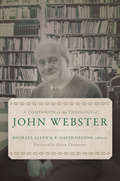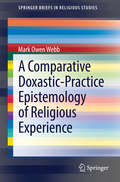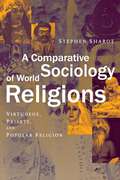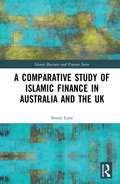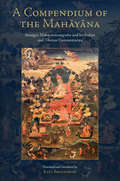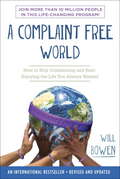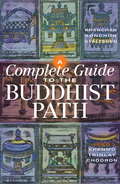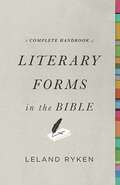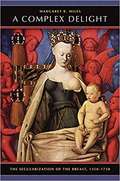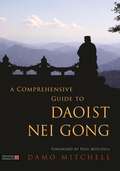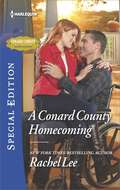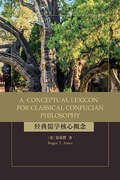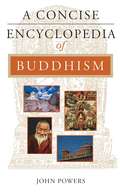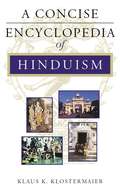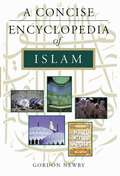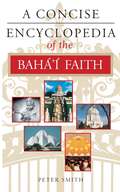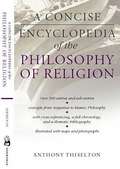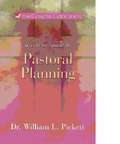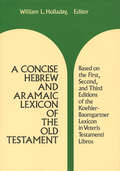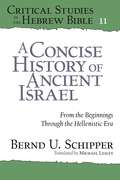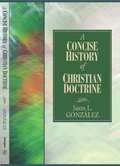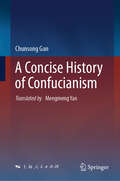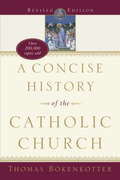- Table View
- List View
A Companion to the Theology of John Webster
by Michael Allen and R. David Nelson, editorsAn overview and analysis of John Webster&’s seminal contributions to Christian theology At the time of his death, John Webster was widely hailed as one of the leading Christian theologians in the world. Over the course of three decades, he produced groundbreaking studies on the theologies of Eberhard Jüngel and Karl Barth and, especially since the turn of the millennium, numerous books and essays on various themes in Christian dogmatics. He then intended to write an encyclopedic systematic theology—a project he was unable to complete. No substitute is possible for that lost opus, but the contributors offer this volume as an homage to Webster and an aid to those who want to learn from him. A Companion to the Theology of John Webster begins with an introductory section on Webster&’s theological development, then continues into an extensive overview of Webster&’s contributions to contemporary discussions of particular doctrines. An epilogue suggests how Webster&’s theology might have unfolded had he lived longer and imagines the continuing influence of his work on the enterprise of Christian dogmatics. Readers hoping to understand the legacy of this great theologian, and also those eager for fresh insights into the present state and future trajectories of contemporary Protestantism, will find much to offer here.
A Comparative Doxastic-Practice Epistemology of Religious Experience (SpringerBriefs in Religious Studies #2)
by Mark Owen WebbThis book takes a theoretical enterprise in Christian philosophy of religion and applies it to Buddhism, thus defending Buddhism and presenting it favorably in comparison. Chapters explore how the claims of both Christianity and Theravada Buddhism rest on people's experiences, so the question as to which claimants to religious knowledge are right rests on the evidential value of those experiences. The book examines mysticism and ways to understand what goes on in religious experiences, helping us to understand whether it is good grounds for religious belief. The author argues that religious language in both Christian and Buddhist traditions is intelligible as factual discourse, and so reports of mystical experience are true or false. The book contends that those experiences can be fruitfully thought of as perceptual in kind and that they are therefore good prima facie grounds for religious belief, in the absence of defeating conditions. The work goes on to explore Christian and Buddhist testimony and how the likelihood of self-deception, self-delusion, imaginative elaboration and the like constitutes a defeating condition. It is shown that this defeater has less scope for operation in the Buddhist case than in the Christian case, and therefore Theravada Buddhism is better grounded. This work will appeal to students and scholars of philosophy and philosophy of religion, and those interested in the study of religious experience.
A Comparative Sociology of World Religions: Virtuosi, Priests, and Popular Religion
by Stephen SharotA Sociology of World Religions presents a comparative analysis of the world's religions, focusing on the differences and interrelationships between religious elites and lay masses. In each case the volume contextualizes how the relationships between these two religious forms fit within, and are influenced by, the wider socio-political environment. After introducing the book's major themes, the volume introduces and builds upon an analysis of Weber's model of religious action, drawing on Durkheim, Marxist scholars, and the work of contemporary sociologists and anthropolgists. The following chapters each focus on major religious cultures, including Hinduism, Buddhism, Catholicism, Protestantism, Islam, Judaism, and the religions of China and Japan. This ambitious project is the first to offer a comparison of the popular, or folk, forms of religion around the world. Sharot's accessible introductions to each of the world religions, synthesizing a vast literature on popular religion from sociology, anthropology, and historians of religion, make the project ideal for course use. His comparative approach and original analyses will prove rewarding even for experts on each of the world religions.
A Comparative Study of Islamic Finance in Australia and the UK (Islamic Business and Finance Series)
by Imran LumThis book provides valuable insights into the practical challenges faced by the nascent Islamic finance industry and compares the Australian experience to developments in the UK. It contributes to a greater understanding of how Muslims living as a minority in Australia and the UK negotiate Islamic doctrine in secular societies by focusing on one aspect of this negotiation, namely the prohibition of ribā. There is little debate in the Islamic tradition on the prohibition of ribā. The differences, however, lie in the interpretation of ribā and the question of how Muslims live in a society that is heavily reliant on interest and conventional banking, yet at the same time adhere to Islamic guidelines. Through the words of religious leaders, Muslim professionals and university students, Imran Lum provides real accounts of how Muslims in Australia and the UK practically deal with conventional banking and finance products such as home loans, savings accounts and credit cards. He also explores Muslim attitudes towards Islamic finance and queries whether religion is the sole determining factor when it comes to its uptake. Drawing on his own unique experience as a practitioner responsible for growing an Islamic business in a conventional bank, Lum provides a firsthand account of the complexities associated with structuring Islamic finance products that are not only sharia compliant but also competitive in a non-Muslim jurisdiction. Using ṣukūk bonds as a case study, he highlights the tangible and non-tangible barriers to product development, such as tax and regulatory requirements and the rise of Islamophobia. Combining academic and industry experience, Lum unpacks the relationship of Islamic finance with Muslim identity construction in the West and how certain modalities of religiosity can lead to an uptake of Islamic finance, while others can lead toits rejection.
A Compendium of the Mahayana: Asanga's Mahayanasamgraha and Its Indian and Tibetan Commentaries (Tsadra)
by AsangaThe first complete English translation of Asanga's Mahayanasamgraha, the most important and comprehensive Indian Yogacara text, and all its available Indian commentaries.The Mahāyānasaṃgraha, published here with its Indian and Tibetan commentaries in three volumes, presents virtually everything anybody might want to know about the Yogācāra School of mahāyāna Buddhism. It discusses in detail the nature and operation of the eight kinds of consciousness, the often-misunderstood notion of “mind only” (cittamātra), dependent origination, the cultivation of the path and its fruition in terms of the four wisdoms, and the three bodies (kāyas) of a buddha.Volume 1 presents the translation of the Mahāyānasaṃgraha along with a commentary by Vasubandhu. The introduction gives an overview of the text and its Indian and Tibetan commentaries, and explains in detail two crucial elements of the Yogācāra view: the ālaya-consciousness and the afflicted mind (kliṣṭamanas).Volume 2 presents translations of the commentary by Asvabhāva and an anonymous Indian commentary on the first chapter of the text. These translations are supplemented in the endnotes by excerpts from Tibetan commentaries and related passages in other Indian and Chinese Yogācāra works.Volume 3 includes appendices with excerpts from other Indian and Chinese Yogācāra texts and supplementary materials on major Yogācāra topics in the Mahāyānasaṃgraha.
A Complaint Free World: How To Stop Complaining And Start Enjoying The Life You Always Wanted
by Will Bowen"A Complaint Free World is an engaging, enjoyable, easy-to-read reminder that the only permanent, constructive changes you can make in the world are the changes that you make in yourself."-Gary Zukav, author of The Seat of the Soul and Soul to Soul A SIMPLE PLAN... A LIFE-CHANGING RESULT... A HAPPIER LIFE ·What exactly is a complaint? (Chapter 1) ·Why is complaining destructive? (Chapters 2-3) ·How can I get others around me to stop complaining? (Chapter 3) ·How can we affect social change if we don't complain? (Chapter 5) ·Why is it so hard to stop complaining? (Chapters 4-6) ·What happens once I no longer complain? (Chapter 8) You may have pondered these questions yourself. Since the Complaint Free program began, Will Bowen has received hundreds of calls, letters and emails asking these and other important questions. In A Complaint Free World: How to Stop Complaining and Start Enjoying the Life You Always Wanted, he provides practical answers and includes inspiring and touching stories from people just like you who have transformed their lives by becoming Complaint Free. Over 6 million people in more than 80 countries have taken the Complaint Free challenge and their lives are a testament to the positive effects of this simple idea. Find out how forming the simple habit of not complaining can transform your health, relationships, career and life. In your hands, you hold the secret to transforming your life. Big words? Yes, but this is a plan that has already proven itself with millions of people around the world. Pastor Will Bowen developed the life-changing A Complaint Free World plan based on the simple idea that good things will happen for you in abundance if you can just leave your grumbling behind. In a Sunday-morning sermon, Will told his congregation he wanted to make the world a complaint-free zone and, to prove he was serious, he passed out purple bracelets to each church member and offered them a challenge. "If you catch yourself complaining, take the bracelet and move it to the other wrist." Now, less than a year later, more than six million people have taken up the challenge, trying to go twenty-one consecutive days without complaining, criticizing, or gossiping, and in so doing, forming a new, positive habit. By changing your words, you can change your thoughts and then begin to create your life by design. People have shared stories with Will of chronic pain relieved, relationships healed, careers improved, and becoming an overall happier person. Less pain, improved health, satisfying relationships, a better job, being more serene and joyous--sound good? It's not only possible, it's probable. Consciously striving to reformat your mental hard drive is not easy, but you can start now by using the steps Bowen presents here. In this book, you can learn what constitutes a complaint, why we complain, what benefits we think we receive from complaining, how complaining is destructive to our lives, and how we can get others around us to stop complaining. You will learn the steps to eradicating this poisonous form of expression from your life. If you stay with it, you will find that not only will you not complain, but others around you will cease to do so as well. In a short period of time, you can have the life you've always dreamed of having.From the Hardcover edition.
A Complete Guide to the Buddhist Path
by Khenchen Konchog Gyaltshen"Buddhist teachings provide numerous methods for bringing greater meaning and happiness into our lives and into our relationships with others. In A Complete Guide to the Buddhist Path, Khenchen Konchog Gyaltshen Rinpoche reveals these methods in direct, vibrant, down-to-earth language. At the core of this work lies The Jewel Treasury of Advice, a text composed by Drikung Bhande Dharmaradza (1704-1754), the reincarnation of Drikung Dharmakirti. Khenchen Rinpoche interprets these ancient teachings with compassion, humor, and a keen awareness for their relevance in contemporary Western life. Those who sincerely want to study and practice the Buddha's teachings will find this an indispensable guide. "
A Complete Handbook of Literary Forms in the Bible
by Leland RykenA renowned literary scholar explains more than 250 literary forms found throughout Scripture in this alphabetically arranged handbook, offering succinct definitions, helpful illustrations, and key biblical references.
A Complex Delight: The Secularization Of The Breast, 1350-1750
by Margaret R. Miles Vanessa LyonLooking at painting and sculpture from the fourteenth through the eighteenth centuries, this provocative work focuses on the symbolism of the female breast to open a dazzling interpretive view of Western European history over four centuries. Margaret R. Miles finds that while in 1350 the Virgin's bare breast represented nourishment and loving care―God's provision for the Christian―by 1750, artistic representations of the breast were either erotic or medical. The breast had lost its meaning as a religious symbol. But how did the breast, and nakedness more generally, lose the ability to represent human bodies as site and symbol of religious subjectivity and commitment? To explore this phenomenon, Miles engages in a wide-ranging investigation of the social, cultural, and religious circumstances within which a religious symbol came to be thoroughly "mastered" by erotic and medical meanings. What emerges is a nuanced understanding of the location of power in early modern Western Europe, of how the lives of women changed over this period, of how art reveals and helps to construct religious meaning, and of how modern Christianity's attitude toward bodies was shaped.
A Complicated Kindness
by Miriam ToewsFrom book jacket... "We're Mennonites. As far as I know, we are the most embarrassing sub-sect of people to belong to if you're a teenager. Five hundred years ago in Europe a man called Menno Simons set off to do his own peculiar religious thing....Imagine the least well-adjusted kid in your school starting a breakaway clique of people whose manifesto includes a ban on the media, dancing, smoking, temperate climates, movies, drinking, rock n' roll, having sex for fun, swimming, make-up, jewelry, playing pool, going to cities, or staying up past nine o'clock. That was Menno all over. Thanks a lot, Menno!" Welcome to the world of Nomi Nickel, a tough, wry young woman trapped in a small Mennonite town that seeks to set her on the path to righteousness and smother her at the same time. In this work of fierce originality and brilliance, Miriam Toews explores the intricate binds of family, and the forces that tear them apart. "Half of our family, the better-looking half, is missing," Nomi tells us at the beginning of A Complicated Kindness. Left alone with her father Ray, her days are spent piecing together the reasons her mother, Trudie, and her sister, Natasha, have gone missing, and trying to figure out what she can do to avoid a career at Happy Family Farms, a chicken abattoir on the outskirts of East Village - not the neighborhood in Manhattan where Nomi most wants to live, but the small town in southern Manitoba. Boasting such attractions as a Main Street that goes nowhere and a replica pioneer village that hearkens back to the days when life was simple, and citizens who didn't live by the book were routinely shunned. East Village is ministered by the fiercely pious Hans, or as Nomi calls her uncle, The Mouth. As Nomi gets to the bottom of the truth behind her mother's and sister's disappearances, she finds herself on a bitter collision course with her uncle and the only community she has ever known. But one startling act of defiance brings the novel to its shattering conclusion, and Miriam Toews reveals herself as a master of storytelling at the height of her power.
A Comprehensive Guide to Daoist Nei Gong
by Damo MitchellA complete and detailed explanation of the Nei Gong process. Explaining the philosophy at the core of Daoist Nei Gong, and illustrated with detailed figures throughout, this fascinating text will be of interest to practitioners of Qi Gong, martial arts and practitioners, and to anyone interested in Eastern philosophy.
A Conard County Homecoming: A Conard County Homecoming How To Train A Cowboy Falling For The Right Brother (Conard County: The Next Generation #34)
by Rachel LeeMAN'S-AND WOMAN'S?-BEST FRIEND Conard County's returning war hero is a world away from the popular high school athlete Ashley Granger remembers. Zane McLaren doesn't want any fanfare-he doesn't want any human contact at all. But it seems Zane's affectionate golden retriever has other ideas about the decorated soldier and the teacher next door! Wounded in battle, Zane wants only to be left alone. He doesn't need anyone's pity, especially his outgoing, dog-loving neighbor's. Because it isn't just Ashley's legendary apple pie that's tempting Zane to quit hiding from life. Suddenly the Purple Heart recipient is having a hard time keeping his own heart under wraps. Has he found the woman who can help him heal the past and build a loving future together?
A Conceptual Lexicon for Classical Confucian Philosophy (SUNY series in Chinese Philosophy and Culture)
by Roger T. AmesUses a comparative hermeneutical method to explain the most important terms in the classical Confucian philosophical texts, in an effort to allow the tradition to speak on its own terms.Over the years, Roger T. Ames and his collaborators have consistently argued for a processual understanding of Chinese natural cosmology made explicit in the Book of Changes. It is this way of thinking, captured in its own interpretive context with the expression "continuities in change" (biantong) that has shaped the grammar of the Chinese language and informs the key philosophical vocabulary of Confucian philosophy. Over the past several centuries of cultural encounter, the formula established by the early missionaries for the translation of classical Chinese texts into Western languages has resulted in a Christian conversion of Confucian texts that is still very much with us today. And more recently, the invention of a new Chinese language to synchronize East Asian cultures with Western modernity has become another obstacle in our reading of the Confucian canons. This volume, a companion volume to A Sourcebook in Classical Confucian Philosophy, employs a comparative hermeneutical method in an attempt to explain the Confucian terms of art and to take the Confucian tradition on its own terms.
A Concise Encyclopedia of Buddhism (Concise Encyclopedias)
by John PowersFrom the teachings of the early masters to the growth of the tradition in the West, this authoritative new reference tool contains over 900 entries supplying information on all the key doctrines, practices, and figures central to Buddhism.
A Concise Encyclopedia of Hinduism (Concise Encyclopedia Of World Faiths Ser.)
by Klaus K. KlostermaierWith entries on everything from Manu to Gandhi and the Ramesvaram to the Himalayas, this is an invaluable reference book.
A Concise Encyclopedia of Islam (Concise Encyclopedias)
by Gordon NewbyThis concise reference guide is designed specifically for readers and students who wish to learn more about the world's fastest-growing religion. Fully illustrated, the encyclopedia contains hundreds of alphabetically arranged entries which give succinct yet authoritative information on everything from the Qur'an and its origins to the role of Islam in the USA.
A Concise Encyclopedia of the Bahá'í Faith (Concise Encyclopedias)
by Peter SmithThis comprehensive and succinct encyclopedia traces the origins and development of the Bahá'í Faith from nineteenth-century Iran to the modern day, covering its central figures and major historical events.
A Concise Encyclopedia of the Philosophy of Religion (Concise Encyclopedias)
by Anthony C. ThiseltonCovering thinkers from Plato to Freud, offering detailed explanations of key themes such as evil, and outlining clear definitions of complex ideas like'the doctrine of analogy,' this is a comprehensive reference tool for all those studying, or interested in, the philosophy of religion
A Concise Guide To Pastoral Planning (Concise Guide)
by William PickettDr. William Pickett brings over forty years of experience in administration and planning to A Concise Guide to Pastoral Planning, an essential guide for those charged with pastoral planning in the Catholic Church. Pickett gives clear direction and a range of options for addressing the multiple issues encountered in planning at three distinct levels of local church life: parish, deanery, and diocese. This book offers a wealth of information on creating effective and theologically, doctrinally, and pastorally sound planning
A Concise Hebrew and Aramaic Lexicon of the Old Testament
by William L. HolladayBased on the First, Second, and Third Editions of the Koehler-Baumgartner Lexicon in Veteris Testamenti Libros, this abridgment--which eliminates bibliographical references and technical information intended for specialists and judiciously trims biblical citations--provides everything the student needs to translate an Old Testament passage.
A Concise History of Ancient Israel: From the Beginnings Through the Hellenistic Era (Critical Studies in the Hebrew Bible #11)
by Bernd U. SchipperThe history of biblical Israel, as it is told in the Hebrew Bible, differs substantially from the history of ancient Israel as it can be reconstructed using ancient Near Eastern texts and archaeological evidence. In A Concise History of Ancient Israel, Bernd U. Schipper uses this evidence to present a critical revision of the history of Israel and Judah from the late second millennium BCE to the beginning of the Roman period. Considering archaeological material as well as biblical and extrabiblical texts, Schipper argues that the history of "Israel" in the preexilic period took place mostly in the hinterland of the Levant and should be understood in the context of the Neo-Assyrian expansion. He demonstrates that events in the exilic and postexilic periods also played out differently than they are recounted in the biblical books of Ezra and Nehemiah. In contrast to previous scholarship, which focused heavily on Israel’s origins and the monarchic period, Schipper’s history gives equal attention to the Persian and early Hellenistic periods, providing confirmation that a wide variety of forms of YHWH religion existed in the Persian period and persisted into the Hellenistic age.Original and innovative, this brief history provides a new outline of the historical development of ancient Israel that will appeal to students, scholars, and lay readers who desire a concise overview.
A Concise History of Ancient Israel: From the Beginnings Through the Hellenistic Era (Critical Studies in the Hebrew Bible)
by Bernd U. SchipperThe history of biblical Israel, as it is told in the Hebrew Bible, differs substantially from the history of ancient Israel as it can be reconstructed using ancient Near Eastern texts and archaeological evidence. In A Concise History of Ancient Israel, Bernd U. Schipper uses this evidence to present a critical revision of the history of Israel and Judah from the late second millennium BCE to the beginning of the Roman period. Considering archaeological material as well as biblical and extrabiblical texts, Schipper argues that the history of “Israel” in the preexilic period took place mostly in the hinterland of the Levant and should be understood in the context of the Neo-Assyrian expansion. He demonstrates that events in the exilic and postexilic periods also played out differently than they are recounted in the biblical books of Ezra and Nehemiah. In contrast to previous scholarship, which focused heavily on Israel’s origins and the monarchic period, Schipper’s history gives equal attention to the Persian and early Hellenistic periods, providing confirmation that a wide variety of forms of YHWH religion existed in the Persian period and persisted into the Hellenistic age.Original and innovative, this brief history provides a new outline of the historical development of ancient Israel that will appeal to students, scholars, and lay readers who desire a concise overview.
A Concise History of Christian Doctrine
by Justo L. GonzalezAn introduction to the core Christian doctrines, the historical context in which they arose, and their ongoing importance to contemporary Christian belief and practice.Justo González has long been recognized as one of our best teachers and interpreters of the church’s belief and history. In this new volume he lays out the answers to three questions crucial to understanding the Christian tradition: First, what are the core Christian doctrines? What ideas and convictions form the heart of Christian identity? Second, Where did these doctrines come from? What are the historical contexts in which they first rose to prominence? How have they developed across the history of the church? Finally, what do these doctrines mean today? What claims do they continue to place on Christian belief and practice in the twenty-first century?Written with the clarity and insight for which González is famous, A Short History of Christian Doctrine will serve the needs of students in church history, historical theology, and systematic theology classes in college/university settings, as well as seminaries/theological schools.
A Concise History of Confucianism
by Chunsong GanThis book is a readable and insightful analytical work that steadily traces and analyzes the historical development of Confucianism in China. This book is structured chronologically and discusses the developing positions of Confucianism across different periods in the Chinese history. Each chapter focuses on a number of key questions and perspectives pertaining to Confucian thoughts and ideas, for example, &‘Benevolence&’ and &‘Propriety&’ in Pre-Qin Confucianism, studies of Mencius and Xunzi, and Dong Zhongshu of the Han Dynasty . In addition, this book pays special and extensive attention to ideas of New Confucianism, its concepts, and formation. This book is written in a simple yet comprehensible style. It aims to broaden and deepen studies of Confucianism via its stage-by-stage discussion about the historical development of Confucian thoughts. Both academic specialists and ordinary readers will find the book helpful and inspiring in its clear and vivid delineation, analysis, and debate about the essence, function, and role of Confucianism in traditional and modern societies alike.
A Concise History of the Catholic Church
by Thomas BokenkotterA Concise History of the Catholic Church, first published by Image Books in 1979, has been one of the bestselling religious histories of the past two decades. Long a mainstay for scholars, students, and others looking for a definitive, accessible history of Catholicism, it has now been meticulously expanded and updated for the new millennium. With a clarity and conciseness that will appeal to the general reader, Thomas Bokenkotter divides his study into five parts that correspond to the major historical and epochal developments in Catholicism. His authoritative, thorough approach takes readers from the Church's triumph over paganism, through "the sound and fury of renewal," to a new section devoted to such topics as dissent, current developments in the ecumenical movement, and liberation theology. Informative illustrations throughout the book, new to this edition, enrich the reader's experience, and the addition of a wide-ranging bibliography increases its value as a sourcebook. A reviewer called the previous edition ofA Concise History of the Catholic Church"a tract for the times, an attempt to help bewildered Roman Catholics and others get some sense of the origins of all the change that has streamed through the windows by Vatican II. " This new edition reaffirms its importance in the library of ecumenical studies and confirms its place among the classics.
